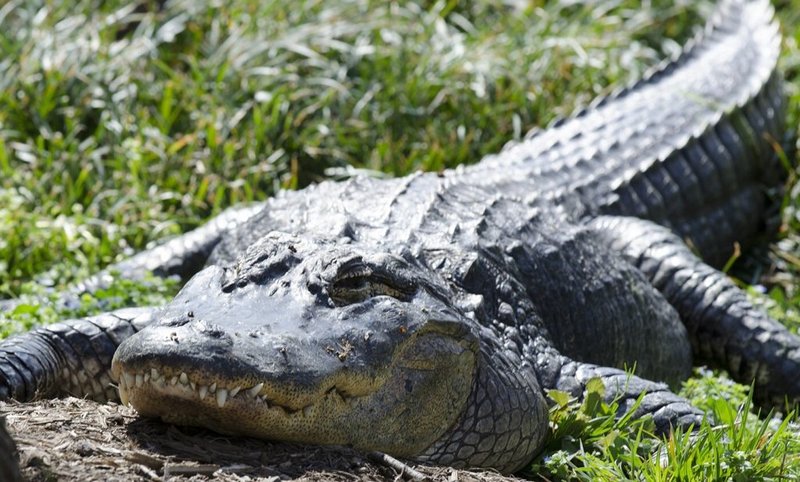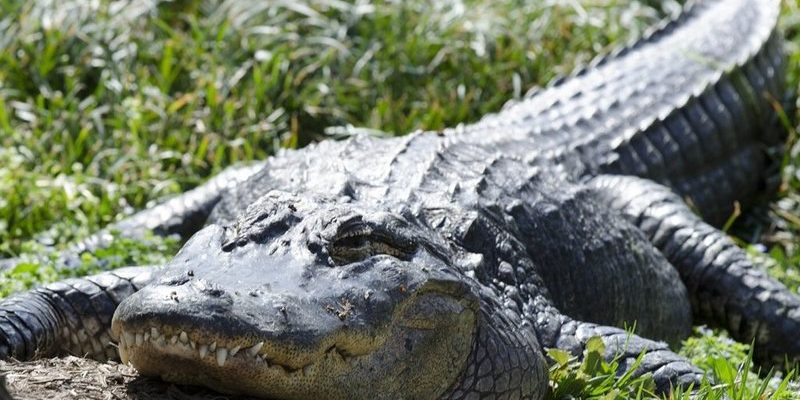
Let’s dive into the murky waters of alligator myths and facts. Imagine we’re sitting by a calm lake, sipping on iced tea, and chatting about these ancient reptiles. You might think you know everything about them, but I promise there are surprises ahead. From their behavior and diet to their role in the ecosystem, there’s more to alligators than meets the eye.
Myth 1: Alligators Are Man-Eaters
You might have heard that alligators are ferocious man-eaters, lurking just beneath the surface, waiting for their next meal. While it’s true that alligators are powerful predators, they don’t typically seek out humans as prey. Most attacks are a result of humans encroaching on their territory or startling them.
Here’s the thing: alligators prefer their natural diet, which primarily consists of fish, birds, and small mammals. They’re opportunistic feeders and will usually avoid anything that could be potentially dangerous—like humans. However, it’s essential to remember that they are still wild animals. Thus, it’s always best to observe them from a safe distance.
In areas where alligators and people coexist, it’s crucial to respect their habitat. If you live near water, make sure to follow local guidelines and avoid feeding them. Feeding alligators can lead to dangerous situations, as they can associate humans with food.
Myth 2: Alligators Can’t Regulate Their Body Temperature
Another common misconception is that alligators are cold-blooded creatures that can’t regulate their body temperature at all. While it’s true that they are cold-blooded, meaning they rely on external heat sources, they have quite sophisticated ways to manage their body temperature.
Alligators can often be seen basking in the sun to warm up or moving to cooler water when they’re too hot. They’re masters of thermoregulation! In fact, they can control their body temperature by altering their behaviors based on the environment.
This ability to adjust helps them thrive in various habitats, from swamps and marshes to rivers and lakes. It’s part of what makes them such ancient survivors—dating back to the time of the dinosaurs!
Myth 3: Alligators Are the Same as Crocodiles
This myth is super common, but alligators and crocodiles are actually quite different. While they belong to the same family, they have distinct features and behaviors that set them apart.
For one, alligators have a broader snout, while crocodiles have a V-shaped, pointed snout. If you ever see them side by side, their difference in appearance is noticeable. Additionally, their habitats differ; alligators prefer freshwater environments like swamps, whereas crocodiles are often found in brackish waters.
You might also notice differences in temperament. Alligators are generally less aggressive than crocodiles and tend to avoid confrontation, while crocodiles can be much more territorial and aggressive.
Fact: Alligators Play a Vital Role in the Ecosystem
One important fact about alligators that often gets overlooked is their role in the ecosystem. Alligators are considered apex predators, meaning they are at the top of the food chain. Their presence helps maintain the balance in their environment.
By preying on various species, alligators help control populations of fish and other animals. They even create “gator holes” in the marshes, which can hold water during dry spells, providing a habitat for other wildlife.
In a way, alligators are like nature’s gardeners, ensuring that their ecosystem remains healthy and balanced. Without them, populations of certain species could explode, leading to environmental chaos.
Myth 4: Alligators Don’t Care for Their Young
You might think that alligators lay their eggs and then scamper off, leaving their young to fend for themselves. Not quite! Honestly, they’re more attentive parents than you might expect. Female alligators build nests and guard their eggs fiercely.
Once the eggs hatch, the mother often carries her hatchlings in her mouth to the water, showing a kind of protective instinct. She’ll stay close by, helping to shield them from predators and teaching them how to survive in their environment.
This level of parental care is quite remarkable for reptiles! So, the next time you think of an alligator as a cold-hearted predator, remember their nurturing side.
Fact: Alligators Can Live for a Long Time
Did you know that alligators can live for over 60 years in the wild? Some even reach 80 years in ideal conditions. Their longevity is another testament to their adaptability and resilience as a species.
Like humans, the lifespan of an alligator can be influenced by various factors—such as habitat conditions, food availability, and the presence of predators. In captivity, they may live even longer, but life in the wild can be harder, with more threats to their survival.
Imagine all the experiences and changes they witness throughout their long lives! From shifting environments due to climate change to interactions with other wildlife, these ancient reptiles have seen it all.
Alligators are more than just fearsome creatures; they play critical roles in our ecosystems and have fascinating behaviors. By debunking these myths and revealing the facts, we can appreciate alligators for what they truly are: incredible survivors with unique adaptations.
Next time you encounter an alligator, whether it’s in a documentary or a safe visit to a swamp, remember to admire these ancient reptiles from a distance. They deserve our respect and understanding, as they continue to thrive in a world that’s constantly changing. So let’s appreciate their place in nature and the balance they help maintain, one “gator hole” at a time!

